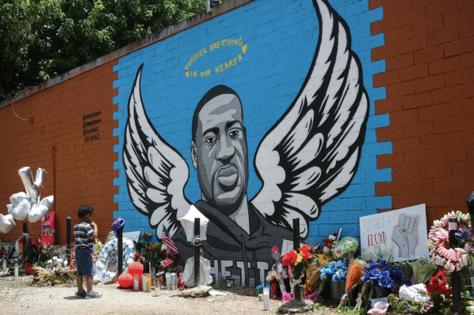Commentary: Trump's policing policies threaten human rights
Published in Political News
In late April, President Donald Trump issued an executive order that expands the federal government’s power over local and state police. The order is a recipe for abuse. The return to the overt embrace of mass incarceration through expanded funding and other support for police and prisons, coupled with the divisive underlying rhetoric of law-abiding citizens versus “dangerous criminals,” is concerning.
Trump’s order also promises “legal resources and indemnification” to officers accused of misconduct or police brutality. The threat against public officials who “prohibit … law enforcement officers from carrying out duties necessary for public safety” seemingly targets any state or local officials who attempt to hold law enforcement accountable for abuses of power.
This executive order echoes the shift of priorities within the executive branch — especially at the Department of Justice, which has stopped pursuing and withdrawn civil rights litigation, including police reform cases and settlement agreements, ominously signaling that police misconduct will not bring consequences.
Equally troubling is Trump’s call to mobilize federal resources, including the military, to fight crime domestically. As the nation observes the fifth anniversary of the murder of George Floyd by Minneapolis police on May 25, 2020, these policies and pronouncements raise further concerns that policing will be conducted in a racially discriminatory manner. Given the history of mass incarceration and the war on drugs, this militarization will have profound class and racial implications, targeting immigrant and Black communities.
Meanwhile, government lawyers with decades of experience litigating civil rights and public corruption, among other areas, have been ordered to focus exclusively on immigration enforcement. Roughly 70% of the Justice Department lawyers within this division have left, resigned, been reassigned or been forced out.
Anyone with a cursory understanding of policing in the United States can predict the outcome — more wrongdoing, less oversight and plummeting community trust. Why would residents report crime or cooperate with police if they believe complaints will be ignored or suppressed? The administration’s policies and promises will lead to lower rates of solving crimes and less effective policing.
Not only has the president decimated oversight agencies, but he also wants police and sheriffs to answer to him by demanding they serve as an auxiliary arm of federal immigration enforcement. Toward this end, he has threatened to yank grants from “sanctuary” jurisdictions and tripled the number of Immigration and Customs Enforcement partnerships through agreements with state or local law enforcement agencies.
Federal immigration enforcement is a heavy and often unwelcome burden on local departments. Deputizing local patrol officers as immigration agents strains local budgets by increasing coordination, training and infrastructure costs. And it blurs the bright line between local and federal priorities, creating a climate of confusion and fear.
The international human rights group Human Rights Watch, for which I work, has reported on the consequences of pushing local police into immigration work — including high-speed car chases that kill citizens and immigrants alike, immigrants being afraid to call 911, and noncitizen crime victims and witnesses rarely receiving the necessary protection to help police and prosecutors do their jobs. In such a climate, why would noncitizens “say something” if they “see something”?
Loosening accountability while expanding federal influence creates a perverse incentive structure at odds with rights-respecting policing. When officers face fewer consequences for misconduct alongside more pressure to work in alignment with the priorities set in Washington, the communities they police shoulder the resulting legal, financial and human toll.
Policing does not happen in a vacuum; its legitimacy rises or falls with the public’s trust. An agenda that shields officers from accountability while drafting them into federal immigration dragnets breaks that trust twice over. It trades community cooperation for fear, human rights for expediency and local autonomy for presidential overreach.
Unless Congress or the courts intervene, the nation may soon find that the greatest threat to public safety is not the crime that the administration weaponizes, but the rights they trample in the name of fighting it.
____
Tanya Greene is U.S. program director at Human Rights Watch. This column was produced for Progressive Perspectives, a project of The Progressive magazine, and distributed by Tribune News Service.
___
©2025 Tribune Content Agency, LLC.

























































Comments